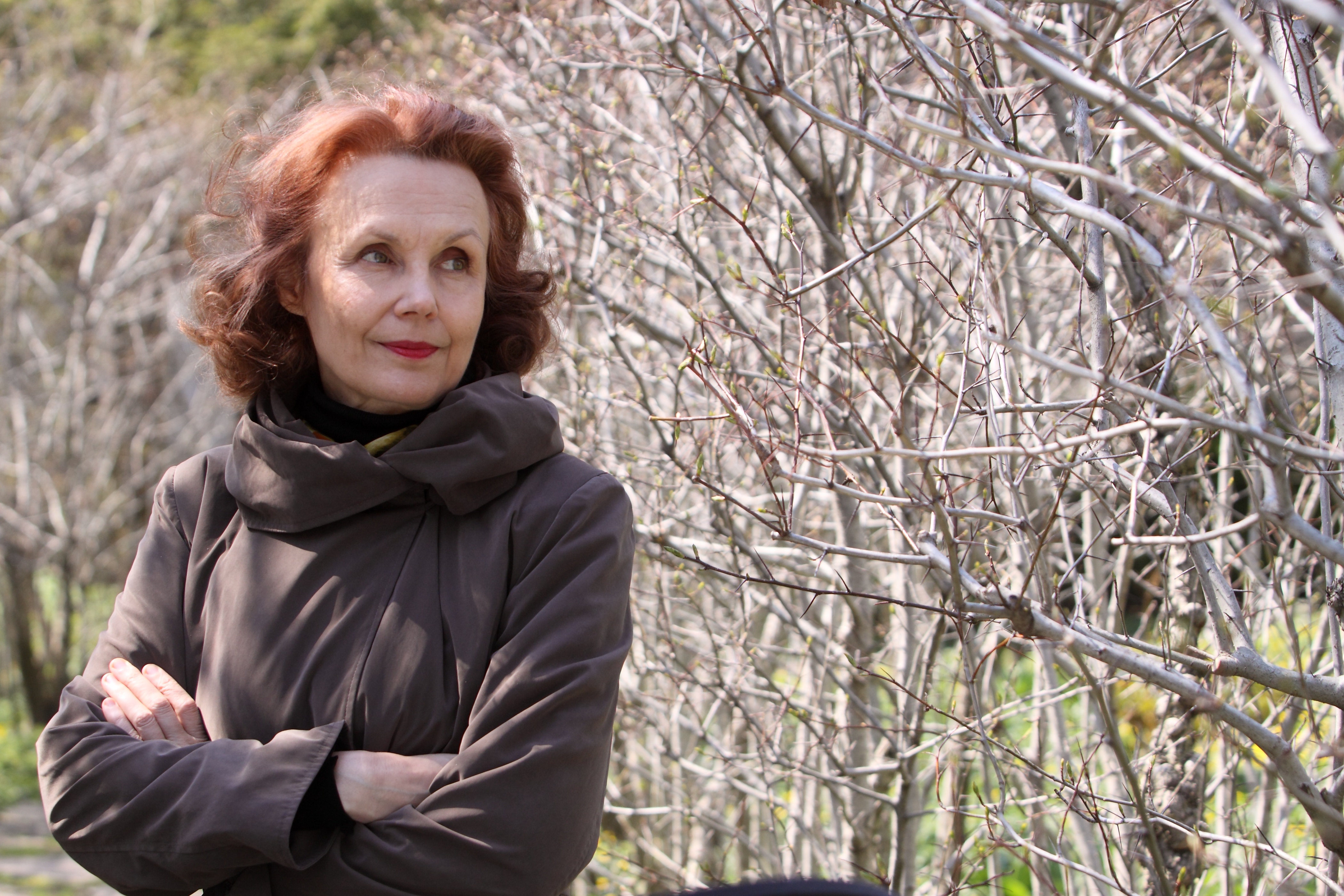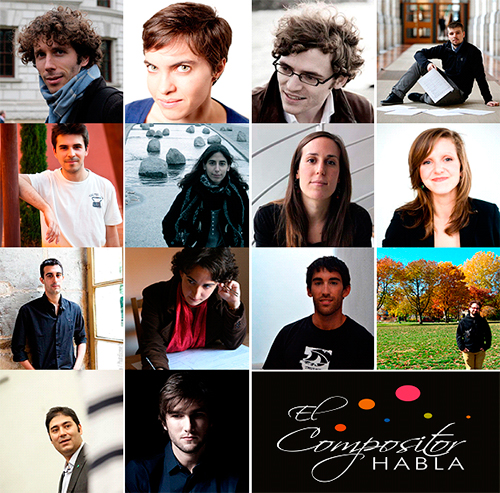Artistas
Kaija Saariaho (Compositora)
Kaija Saariaho | Interview with Kaija Saariaho
03/07/2018She is one of the most fascinating and original voices of the contemporary scene and undoubtedly a composer worth following. I have talked to her and this is what she told us.
.jpg) 1. Ruth Prieto: In your biography I can read: “Composer and performer”, but who is Kaija Saariaho?
1. Ruth Prieto: In your biography I can read: “Composer and performer”, but who is Kaija Saariaho?Kaija Saariaho: That particular biography puts me in a larger group of Finnish music people of composers and performers, but I am just a composer, whose goal is to live with music and develop in my work from one piece to another.
2. R.P.: Which characteristic defines you best?
Kaija Saariaho: Maybe obsessively-working.
3. R.P.: What are your musical roots (real or imaginary)?
Kaija Saariaho: My musical roots are much in nature, in my summers at the country house in Finland, to be surrounded by forests, and listening birds, waves, wind, smelling snow. But as a child I also listened much radio by myself, and it was my only gate to music for a long time. I remember hearing at the country house, from a small portable radio – we didn´t have electricity there – for the first time the music of Bach and many other composers I learned to love.
All these are the real roots, but in future they might become imaginary, knowing how human actions are destroying nature everywhere and birds are vanishing also in those Finnish forests.
4. R.P.: What inspires you as a composer and why?
Kaija Saariaho: Composing is a way of living, and most often the inspiration comes during the work. But when thinking of ideas for new works, sometimes various extra-musical stimulus can make me realize aspects of music that has been in my mind, without me yet noticing it. That stimulus can be a text, film, natural light, landscape, colors or images. These things make me conscious of the music I´m imagining at that moment. I don´t know why.
5. R.P.: What is your main obsession when working?
Kaija Saariaho: I would never like to take more time than needed for my music, for either a small piece or a large opera. I mean here that the duration of a piece shouldn´t be longer than absolutely needed. So, I plan and imagine in advance the necessary time for the music I´m about to write, I draw a timeline to plan it carefully, and very often stay in my plan.
6. R.P.: What does silence sound like?
Kaija Saariaho: Silence sounds for me as it looks in a musical score: white, or then it can be slightly colored by fading resonances of sounds, and that is very beautiful.
 7. R.P.: You have just been awarded with the Premio Fronteras del Conocimiento from BBVA Foundation. What can you tell us about that?
7. R.P.: You have just been awarded with the Premio Fronteras del Conocimiento from BBVA Foundation. What can you tell us about that?Kaija Saariaho: This Award is a huge honor, and I much appreciated receiving it next to those high-level scientists. It means that the BBVA Foundation gives importance to the knowledge that is different from the one based on pure facts and more connected to our feelings and unconsciousness. This is what we need for artistic creation, in addition to the factual skills. The scientists I met at the ceremony are all working on the central questions in our society today, such as climate change, ecological subjects and their relation to economy, new cancer treatments. It is fantastic that next to those important subjects there is also a place for contemporary music, because music, and art in general, is, as it has been always, an important part of human existence. In fact, independent scientific research and contemporary noncommercial art are in quite similar situations in modern plutocratic world — all is measured with cash flow forecasts today, and the activities that refuse to have money as primary objective become easily marginal.
8. R.P.: We have the idea, probably very old, of what a concert is: people playing and people listening. How do you imagine “concerts” in the XXI century?
Kaija Saariaho: I’m still often happy just to listen when people play music! I love musicians who have skills and sensitivity to communicate music through their personal interpretations. Musicians have often studied their instruments and music since their childhood, and what they communicate, as a fruit of that work, can be touching and revitalizing.
Adding images to music can be successful and enriching of course, as it can be disturbing.
And of course, one can imagine other ways of sharing music, even if I’m not very fond of happenings in which the audiences are ‘participating’ in concert – but all depends on ideas. Sometimes moving in the concert space makes people experience music differently, or for example lying on the floor.
But I don’t have any revolutionary visions for the future concerts.
9. R.P.: In this personal "inventory" that we all have of noises, sounds, music and songs, what can you tell us about your soundscape?
Kaija Saariaho: These are difficult questions to put into words; my music has different moods and characters since beginning, as it has different textures and colors. It has also clear shapes in my mind, and the aspect of time is always in my mind: at what degree I want the listener to be aware of time, is it measured actively, or is it hidden or faded.
10. R.P.: Where are you now as a composer?
Kaija Saariaho: I have much music behind me already, but I live still in the middle of music, with many ideas and plans. Even if I am tired of many businesslike decisions on culture and music today, I am not tired of composing. My initial passion for music and trust in its importance remain same. Also, in our profession there is always much to learn.
So, my aim as a composer is concentrating on the essential and challenge myself.
11. R.P.: What is your creative process when it comes to tackling a new work?
Kaija Saariaho: I imagine music first, especially the mood and character of it. As I mentioned earlier, I also want to understand the duration of the piece before starting the composition. I draw that timeline and a general map for myself with formal ideas, tempi, instrumental ranges in certain important passages, and other parameters. I define the harmony I’ll be using, and often also the rhythmic characters. I then start composing, telling myself that all can be changed, not to be too anxious about the decisions I am making for the first bars, so important always. I work linearly from the beginning until the end, and if on an orchestral score or opera, I write directly the whole orchestra and voices. I don’t write piano scores.
Also, when I complete a passage I don’t come back to it, but send it to my publisher to be already edited. I’m relieved to thus lighten the workload gradually.
12. R.P.: What are you working on now?
I am working on a new opera with five acts, and I’m now on act IV. I started working on this opera in 2016, when the libretto was ready. I hope to have completed the work by next January.
13. R.P.: What would you like to do as a composer that you have not been asked to do yet?
Kaija Saariaho: I cannot think of anything now that I have not been asked to do!
But I cannot do everything I’m asked, and I rather plan my work ahead by myself, trying to understand what is the most meaningful thing to do next. Sometimes one of the propositions I have and my own plans meet naturally, sometimes I find someone to perform or commission a work I really want to compose. I have many kinds of ideas I would like to realize in the future, but speaking about genres I don’t think there is anything new that doesn’t exist already. Or maybe there is?
14. R.P.: What are your upcoming projects?
Kaija Saariaho: My next large composition project is an orchestra piece, something I always enjoy composing after having completed an opera: to let the orchestral sonorities grow freely, not being forced to think about the balance with voices. And I enjoy taking time to write chamber music between large works. I had yesterday a small premiere of a solo violin piece called Bon vent. That piece is a gift, and I much enjoyed composing it. Doing that kind of small projects is like writing letters to good friends, without pressure, just wanting the message to correspond the person to whom I´m addressing it. So even if I have plans for many years to come, I want always to have in my composition calendar time for such sudden inspirations that are the source of most of my chamber music.
More information on the website of composer Kaija Saariaho
Kaija's photos are by Maarit Kytoharju courtesy of the composer
Destacamos ...
Nueva Sección Directorio
dedicada a la promoción de compositores, intérpretes, instituciones y editoriales.

dedicada a la promoción de compositores, intérpretes, instituciones y editoriales.



